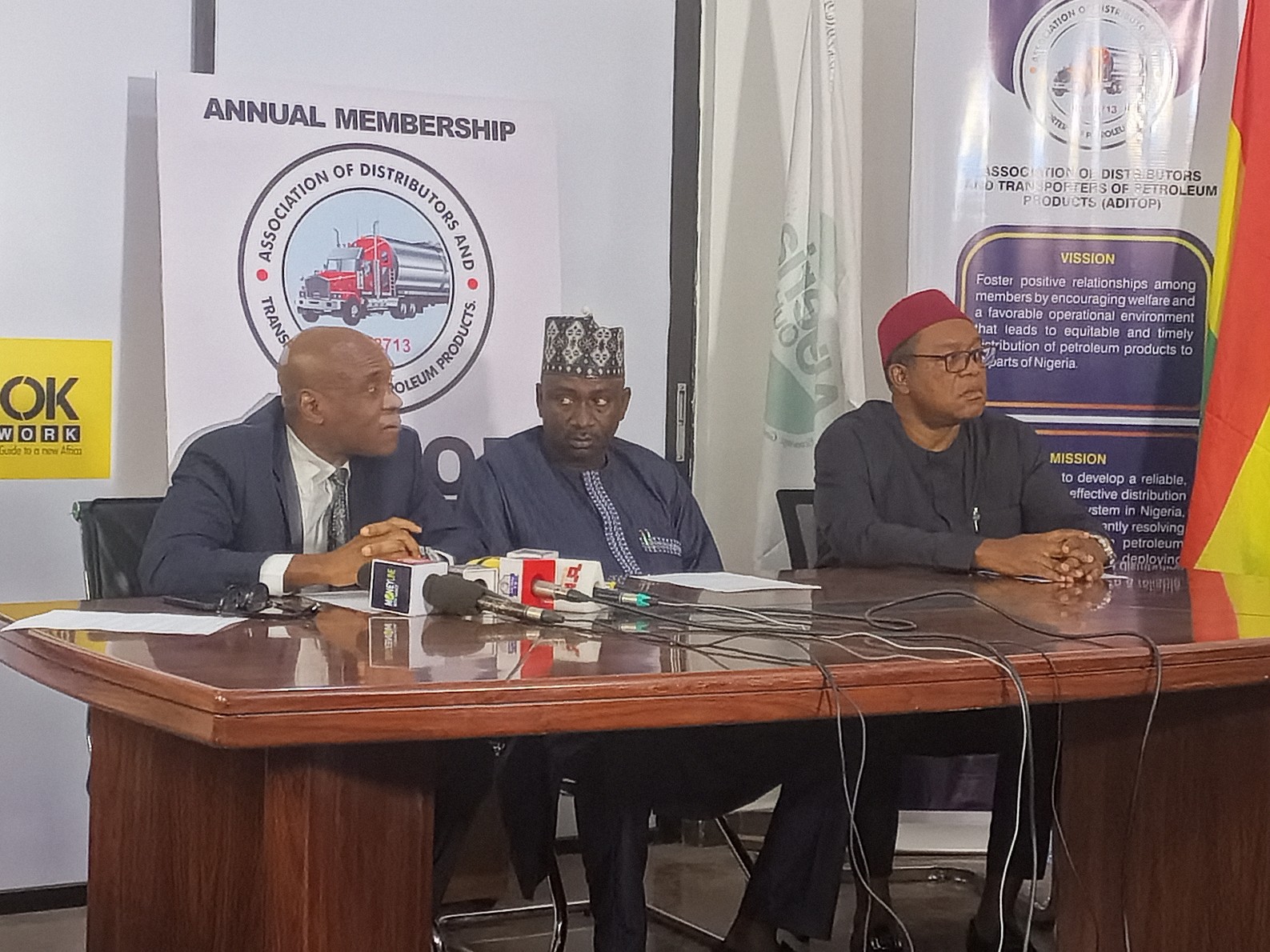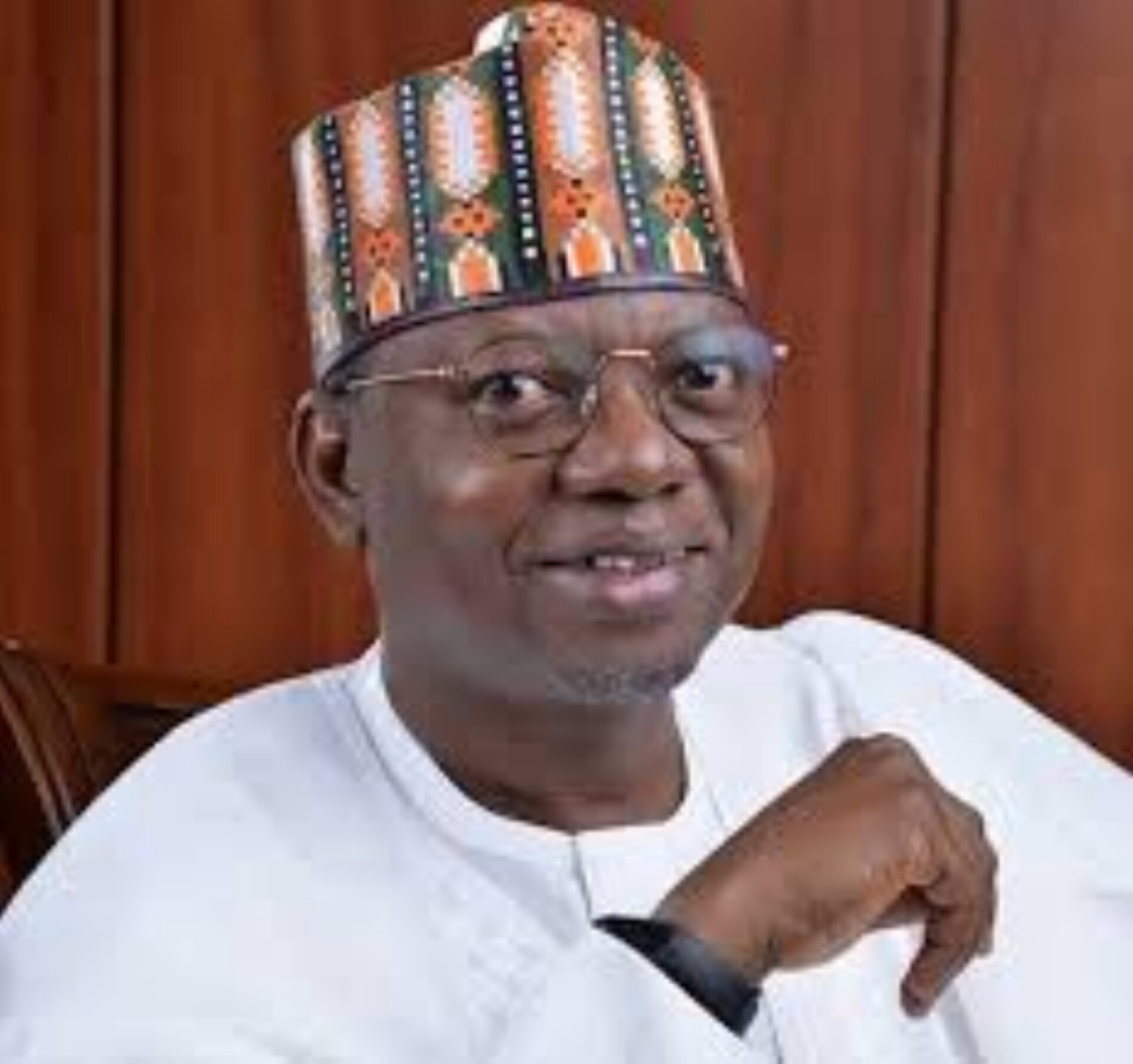***Aim to eliminate, diversion, scarcity of petroleum products
In a bid to ameliorate the lingering crises in the Petroleum industry that has been bedeviled by scarcity of the products the two major players; The Association of Distributors and Transporters of Petroleum Products (ADITOP) and the Independent Petroleum Marketers Association of Nigeria (IPMAN) have formed a synergy.
The Nigerian populace have been suffering from the lack of Petroleum products leading to long queues at filling stations which had grounded economic activities for over two months now.

It was alleged that the tanker drivers were in the habit of diverting the products to neighboring countries at the detriment of Nigerians.
Speaking on the synergy they have formed to ensure petroleum products are available and to curb the issue of fuel scarcity in Abuja on Wednesday, President of IPMAN, Elder Okorinkwo
said they came to form the synergy to ensure that the Nigerian economy that depends on petroleum does not suffer.
“It is good that you come to know how we intend to move this group together to having a free, without any hindrance in the flow and distribution of petroleum products
“You will agree with me that the main stay of the economy in this country oil and gas.”
According to him, IPMAN and ADITOP investments portfolio in the sector is running in trillions.
“The major stations you will see, all these tankers you see are the combined efforts of ADITOP and IPMAN.”
He said over time they have not been able to have the kind of synergy they are now having hence the many hiccups.
“Over time we have been having different people coming one way or the other, we don’t have a clear cut organization like this.
He said ADITOP is one of the organisation majorly involved in oil and gas, the others are not seriously into oil and gas
“ADITOP are the owners of the tankers you see, some of them have over 500 to 1000 trucks on the road
“So we must bring all these facilities together to see how we can overcome the problem.
He said the relationship with ADITOP was inaugurated on the 24th of march at NAF centre.
“I believe it will now bring new horizon in the industry where we can now discuss our welfare, that of our workers, and by extension reduce or eliminate incessant strikes in the system.
“I think that is the major thing we have decided to do as a group. We have somebody who is deep in managing organizations in the person of Dr. Ibe. “This group since our coming together he is bringing a lot of values to bare in this process of.
The president of ADITOP Alhaji Lawan Dansaki said Transportation in petroleum business is very vital and important
He said IPMAN own the filling stations and ADITOP own the trucks, so at times the synergy will help us and help them ho make sure that all their products are delivered to their stations.
“Before now we were doing it independently they do their own and we do our own but now with this crises and this issue of petroleum scarcity, we found it very expedient to come together to collaborate.
“Our consultant BENHAN has done his best to ensure the two organisations signed a memorandum of understanding (MoU) and to collaborate to eliminate the problems that we are facing.
“At times we have some problem we need the IPMAN, and going by the nature of their business they can not do without us the Transporters who are the ones taking the products to them and at the end of the day our misunderstanding make Nigerians to suffer because when two elephants are fighting it is the grass that suffers.”
“NNPC has a lot products in private depots but the problem is how to take the products round the nation”
He said their collaboration has paid off as the long queue that was witnessed last week has drastically reduced.
“This will continue and all our support we will give to the NNPC and all the relevant authorities and Government to make sure that the issue of scarcity, unnecessary strike, is brought to an end in the oil industry.”
Group Executive chairman/CEO of the
BENHAM Group Dr. Maurice Ibe said he brought the two giants together to see how petroleum products can be made available and the Nigerian economy will stop suffering.
“Those who drive vehicles have experience the worst hardship in the petroleum sector regarding distribution in the last couple of weeks and we cannot continue to let things like that in good conscience to continue to happen.
“For a country that produces oil and gas, a country that God has so endowed with so much resources in the oil sector, we have no reason to let ourselves to suffer this kind of incredible hardship.
“The hardship that we suffered in that last couple of weeks, almost two months now is as a result of the gaps in the distribution chain.
“The products are there but it is not reaching the nooks and corners of of Nigerians. Why is it not getting to them?
“The owners of these tankers that move the products from place to place seem to have lost control of their takers and products to their drivers, who drive the trucks.
“The product are being diverted to neighbouring countries thereby short changing those of us who lives in Nigeria that own the product.
“Huge amounts are being expended in the industry yet we are not seeing the result as the drivers have highjacked the transportation of petroleum resources in Nigeria.”
He said what his group has done is to bring the petroleum markets who owns the filling stations and those who distribute the products to form a synergy to alleviate the sufferings of Nigerians to make sure products reaches every books and crannies of Nigeria.
He said it will also checkmate the issues of incessant strikes in the country in oil and gas sector adding that they aim to stop the anomalies if not totally but to reduced to the minimum level.
“Also to work with the government to find ways to reduce the problem of distribution and supply of petroleum products all over the country and you can’t do that without having the two principal stakeholders together who control 80% of the downstream sector. “Their investments and assets within the downstream sector runs into over N10tr. You can’t have such investments and let drivers and all manners of people control your investments.”




